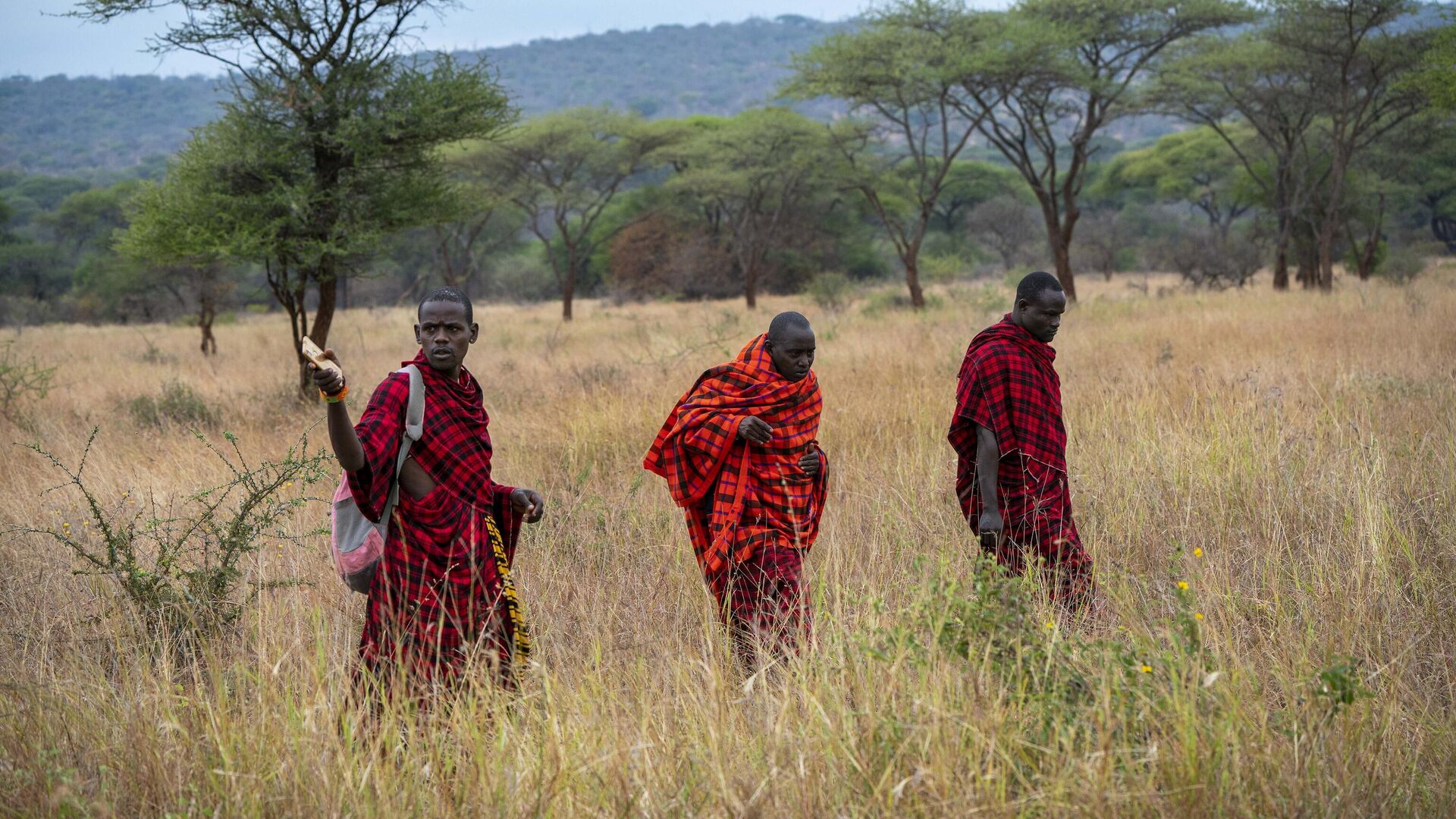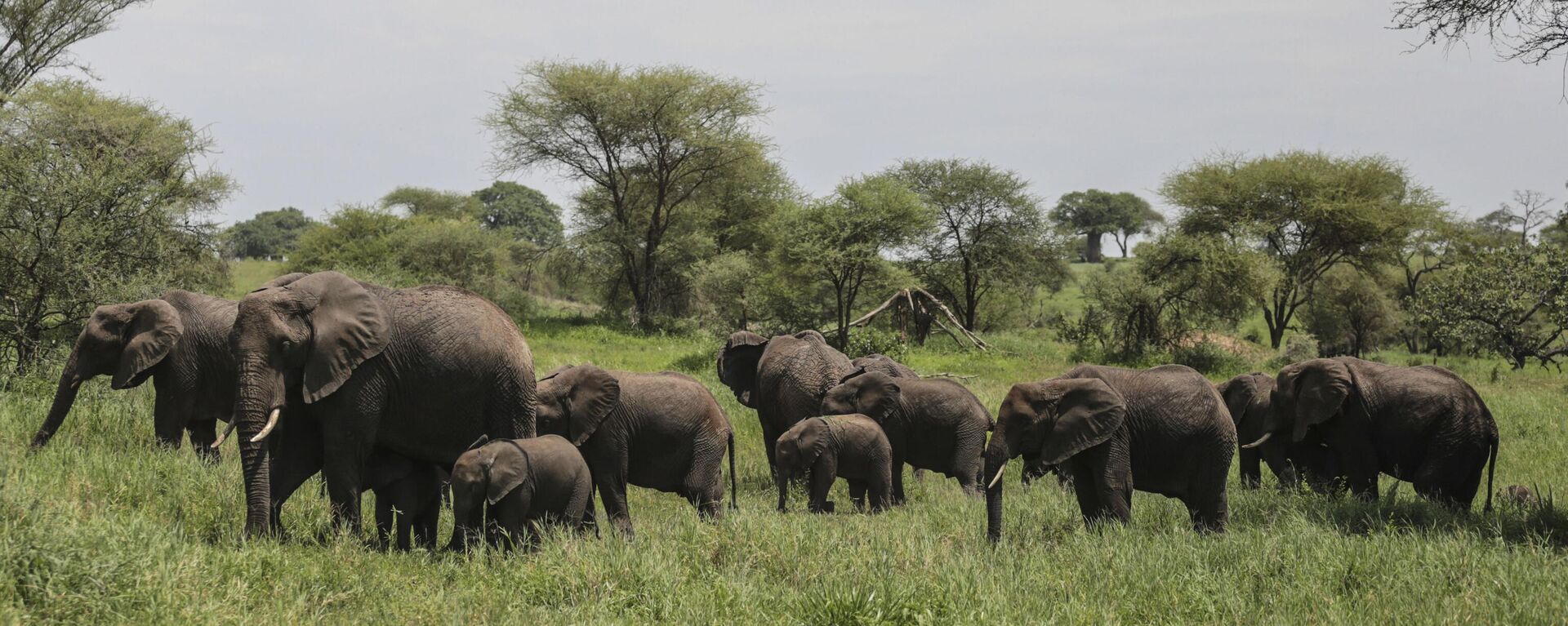https://en.sputniknews.africa/20230607/tanzanian-minister-strikes-back-at-amnestys-misleading-report-on-maasai-evictions--1059766501.html
Tanzanian Minister Strikes Back at Amnesty's 'Misleading' Report on Maasai Evictions
Tanzanian Minister Strikes Back at Amnesty's 'Misleading' Report on Maasai Evictions
Sputnik Africa
On June 6, Amnesty International, a UK-based human rights organization, published a report, in which it accused Tanzania of excessive use of force, arbitrary... 07.06.2023, Sputnik Africa
2023-06-07T14:22+0200
2023-06-07T14:22+0200
2023-07-16T18:53+0200
sub-saharan africa
east africa
tanzania
court
law
human rights
justice
minister
culture
https://cdn1.img.sputniknews.africa/img/07e7/06/07/1059767369_0:160:3072:1888_1920x0_80_0_0_20a3f765e5ca6ba611b4ff1d69f5e7dd.jpg
Tanzania's Justice Minister Damas Ndumbaro has commented on Amnesty's report, denying allegations against the government of forcefully removing the Maasai people from their ancestral land in Loliondo, northern Tanzania, the press has reported.According to the top justice official, the report is "misleading" because it provides erroneous information, accusing the authorities of violating human rights and planning eviction. The report alleged that Tanzanian security forces without due process relocated the Maasai community from their ancestral lands. It was noted that the government's actions deprived 70,000 people of their livelihood by leaving them without access to lands for cattle grazing. Moreover, the report accused the security forces of shooting and teargassing members of the Maasai, who resisted eviction. Ndumbaro stated that the government had only intended to demarcate the 1,500-square kilometer conservation area in Loliondo from the part set aside for human activities. Loliondo has an estimated 4,000 square kilometers with 1,500 of them allocated for conservation, since this area is a crucial source of water that flows through Serengeti and serves as breeding grounds for wildebeest.He noted that since the country's independence in 1961, local people had occupied the area to an extent that it could no longer be used for wildlife conservation. The government, he explained, had donated about two-thirds of the land to the communities there, restricting human activities in another part. The minister emphasized that the police had acted professionally, even though local residents confronted them with weapons. He further elaborated that a policeman had been killed and those responsible were being tried in court, following the incident. In 2009, the Tanzanian government restricted human activities in the area in question, including settlements and livestock grazing in parts of Loliondo, situated in the Arusha Region's Ngorongoro District in northern Tanzania. The protected areas include 1,500 square kilometers of villages where the Maasai have lived for years, using the land for livestock grazing and food production. The evictions of the Maasai, carried out by the state's security forces, reportedly took place in 2009, 2013, 2017 and 2022. The Tanzanian authorities have repeatedly argued that the eviction operations were conducted in accordance with the nation's applicable laws, highlighting that no property was destroyed, and that the Maasai were always treated with respect and according to international human rights law.
https://en.sputniknews.africa/20230604/tanzanias-wildlife-population-increases-due-to-successful-anti-poaching-efforts-minister-1059706814.html
east africa
tanzania
Sputnik Africa
feedback@sputniknews.com
+74956456601
MIA „Rossiya Segodnya“
2023
News
en_EN
Sputnik Africa
feedback@sputniknews.com
+74956456601
MIA „Rossiya Segodnya“
Sputnik Africa
feedback@sputniknews.com
+74956456601
MIA „Rossiya Segodnya“
east africa, tanzania, court, law, human rights, justice, minister, culture
east africa, tanzania, court, law, human rights, justice, minister, culture
Tanzanian Minister Strikes Back at Amnesty's 'Misleading' Report on Maasai Evictions
14:22 07.06.2023 (Updated: 18:53 16.07.2023) On June 6, Amnesty International, a UK-based human rights organization, published a report, in which it accused Tanzania of excessive use of force, arbitrary arrests, and forced evictions against members of the Maasai Indigenous community in Loliondo, located in the country's northern Ngorongoro district in the Arusha region.
Tanzania's Justice Minister Damas Ndumbaro has commented on Amnesty's
report, denying allegations against the government of forcefully removing the Maasai people from their ancestral land in Loliondo, northern Tanzania, the press has reported.
According to the top justice official, the report is "misleading" because it provides erroneous information, accusing the authorities of violating human rights and planning eviction.
The report alleged that Tanzanian security forces without due process relocated the Maasai community from their ancestral lands. It was noted that the government's actions deprived 70,000 people of their livelihood by leaving them without access to lands for cattle grazing. Moreover, the report accused the security forces of shooting and teargassing members of the Maasai, who resisted eviction.
Ndumbaro stated that the government had only intended to demarcate the 1,500-square kilometer
conservation area in Loliondo from the part set aside for human activities. Loliondo has an estimated 4,000 square kilometers with 1,500 of them allocated for conservation, since this area is a crucial source of water that flows through Serengeti and serves as breeding grounds for wildebeest.
He noted that since the country's independence in 1961, local people had occupied the area to an extent that it could no longer be used for
wildlife conservation. The government, he explained, had donated about two-thirds of the land to the communities there, restricting human activities in another part.
The minister emphasized that the police had acted professionally, even though local residents confronted them with weapons. He further elaborated that a policeman had been killed and those responsible were being tried in court, following the incident.
"Our police behaved very professionally in last year's’ demarcation exercise. They did not react because they respect human rights," he stressed.
In 2009, the Tanzanian government restricted human activities in the area in question, including settlements and livestock grazing in parts of Loliondo, situated in the Arusha Region's Ngorongoro District in northern Tanzania. The protected areas include 1,500 square kilometers of villages where the Maasai have
lived for years, using the land for livestock grazing and food production.
The evictions of the Maasai, carried out by the state's security forces, reportedly took place in 2009, 2013, 2017 and 2022. The Tanzanian authorities have repeatedly argued that the eviction operations were conducted in accordance with the nation's applicable laws, highlighting that no property was destroyed, and that the Maasai were always treated with respect and according to international human rights law.


